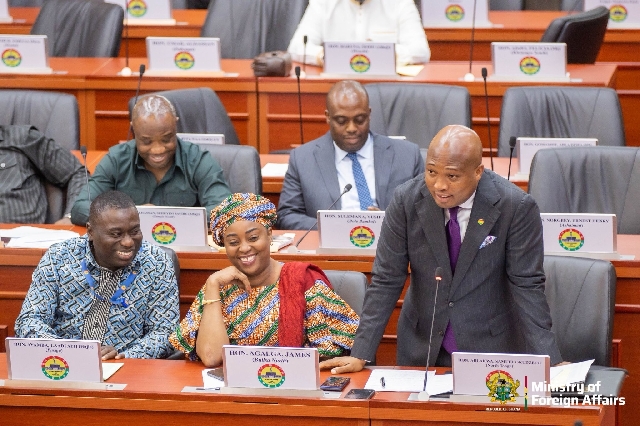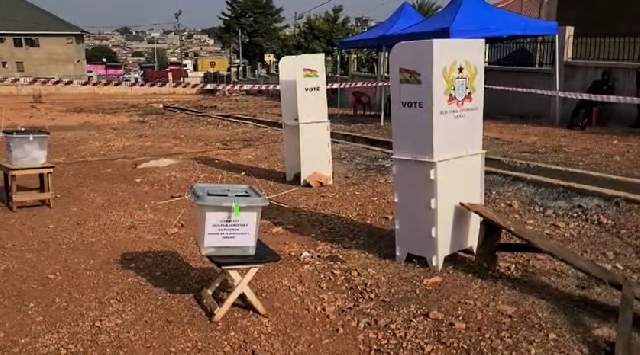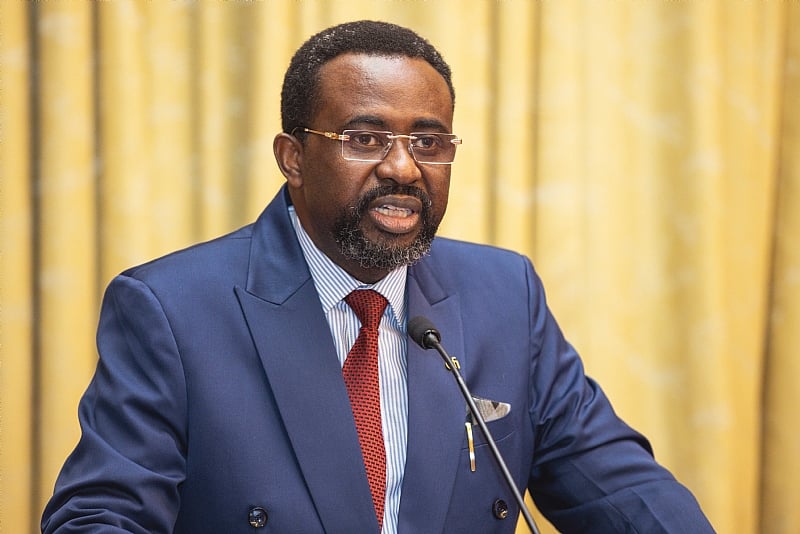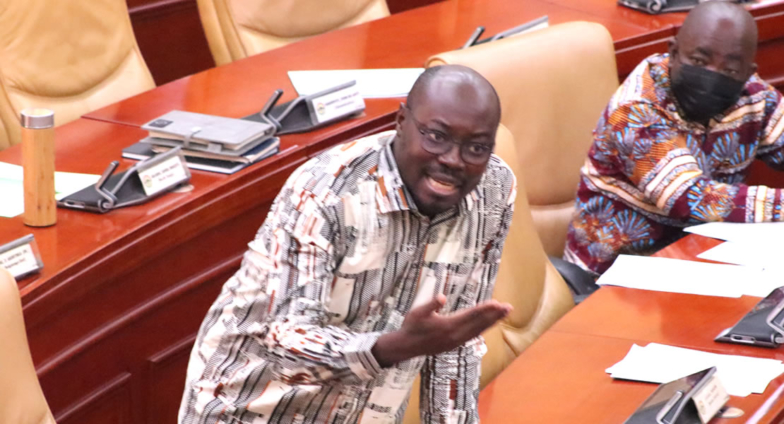Mobilization of the economy – at whose expense. There was still a crisis in Russia, but yesterday. There is no plan, but the outlook is positive. Academician Nigmatullin puts the authorities “bad”. Gas tariffs are proposed to be raised. In the Duma, they began to prepare shawarma. Russian tourists are taxed in tribute. The topic of the abolition of pensions is back in the game. There are no negative forecasts in Lipetsk.
1.
Russian Finance Minister Anton Siluanov announced that the Ministry of Finance is preparing to mobilize the resources of the economy in the next three years. According to the minister, despite the serious budget deficit of 2023, there are no special problems yet, but for the next three years it is necessary to mobilize “all resources”.
In other words: since there is no reason to believe that such a deficit is only a matter of one year and that the former revenues from oil and gas will return, the government will look for other sources of income in these very “all resources”. And what is the main resource minus oil and gas? There is only one answer: people and the businesses they undertake.
And the science of the domestic economy knows three options for finding resources in this substance. The first is to raise taxes. The second is to cut off the social programs of the state. The third is to devalue the ruble. So economists are left wondering how many of the three methods will be used.
This economy is “completely unadapted to respond to profound changes,” he said in an interview with On the Eve. Ru economist Alexander Buzgalin: “This economy can react only at the expense of additional finances: shortages, eating up the stock that has been set aside. Unfortunately, it does not have internal mechanisms of development. If everything is preserved as it is, the deficit will deepen. Judging by the way they have always reacted before, there will be no increase in income taxes, a progressive income tax and other sources of increasing resources at the expense of richer agents of the economy. There will be cuts in social spending, fictitious wage increases, minimum wages, which in fact barely covers inflation, if it covers it at all, because inflation for the poorest segments of the population is always 1.5 times higher than average inflation.
In general, all this is reminiscent of an old joke from the times of perestroika: “-Dad, vodka has risen in price. Are you going to drink less now? “No, son, you’re going to eat less now.”
There is, however, another unusual option. Not to squeeze an “additional resource” out of the economy for the state budget, but to cut the ambitions and habits of the state to the possibility of the economy.
Recently, Anton Siluanov presented such an option – a frontal reduction in government spending. The Minister of Finance suggested that all departments reduce their spending by 10% on unprotected budget items – that is, except for social ones. But, as reported by Vedomosti, the members of the government commission opposed it. Moreover, Siluanov was advised to pay attention to the acceleration of GDP growth, the devaluation of the ruble and “other factors”. Which, apparently, mean for many officials that no sequestration of expenses is needed – perhaps, and so it will carry. In general, as in the film “An Ordinary Miracle”: “When his wife was strangled in front of him, he stood nearby and said: “Be patient, maybe it will cost” …
2.
In the meantime, the government chooses who or what to slaughter for the benefit of the budget, the Central Bank has prepared a whole set of analytics related to the domestic economy. In particular, the Central Bank issued a special analytical report “Assessment of the effectiveness of anti-crisis measures of the Bank of Russia”. The report says that “the crisis of 2022 was the biggest shock to the Russian market.”
“Wait a minute!” – exclaims in this place a Russian who has not fallen into dementia. “Throughout 2022, deputies, politicians, officials and government media assured us that there was no crisis, and sanctions were only good for the Russian economy. Now, therefore, it turns out that the crisis was still unprecedented… So was there a crisis or not?!”
But here this boring Russian will have to explain that it is not necessary to perceive everything so linearly and literally. When there is a crisis, it does not exist, and when it was defeated, it was, and what a crisis! But yesterday. And what is incomprehensible here?
3.
In addition to the story about the crisis, which did not happen, but which still was, analysts of the Central Bank gave their forecast about the ruble exchange rate and the level of wages. As noted in the subtitle “Parliamentary Gazette”, “the forecasts do not look so gloomy.”
Let’s look at the forecasts. Inflation in 2023 will slightly exceed the figure previously predicted by the regulator and will amount to 5.7%, and in 2025 it will drop to the level of the Central Bank’s famous target of 4%. The nominal wage of Russians will grow by 10% this year and by 7.9% next year. Real wages will grow by 4.2% this year and by 2.3% next year. The ruble exchange rate in 2024-2025 will be around 85 rubles per dollar.
But here’s the dokuka. How is it possible to predict with such accuracy the level of inflation, the ruble exchange rate and wage growth – real and this (how is it, infection?) nominal, IF the dispute between the Ministry of Finance and the government has so far ended in nothing and it is still unclear what budget expenditures will be cut, how the ruble will be devalued and whether taxes will be raised?
In such circumstances, such an accurate forecast is just some kind of miracle. No, not just a miracle, but a Russian economic miracle, since only in our country it happens: we do not know what we will do YET, but we ALREADY boldly predict what the result will be. In general, applause to the 25 economists surveyed by the Central Bank.
4.
And one more curious detail. Experts of the Bank of Russia, according to media reports, revealed the relationship between income inequality and the dynamics of Russia’s GDP. And here’s the catch: if income inequality rises, then GDP slows down. Although, most likely, the opposite is true: if GDP grows, then inequality decreases slightly. Because in well-fed years it is not a sin to share a little. And in troubled years, they themselves are not enough. And since we have much more anxiety than satiety, sorry, people are kind.
As for the problem of inequality and wretchedness of Russian incomes, Academician of the Russian Academy of Sciences Robert Nigmatullin devoted his speech to this topic at the recent Oryol Economic Forum. According to the media, the academician “put a tough failure to the modern government of Russia – President Vladimir Putin, the government and parliament.” The main theses of Nigmatullin are as follows:
Over the past 10 years, the average annual rate of economic growth in Russia is only 1% (for example, in Poland this figure is 4 times higher). National projects have failed, medicine and education are in a deplorable state. Russia’s GDP per capita is now less than in Portugal, Turkey, India, China, the former countries of the socialist camp of the USSR and the Baltic countries. Russia is home to 75% of the low-income poor, and this is humiliating. And at the same time, 0.4% of families have an income of more than 5 million rubles a month. At the same time, there is a huge inequality between the regions: residents of Moscow have an average income of 90 thousand rubles, and in the bulk of the regions the income is only 30 thousand rubles or lower. According to the academician, officials are engaged in wrecking reforms and “replaced the dictatorship of the proletariat with the dictatorship of stupid bureaucracy.”
“President Putin once said that the middle class is the citizens of our country who have an income of 17.5 thousand rubles,” Nigmatullin recalled. “Who could have said that to him?”
And one more moment caused the academician to ask: “Despite the fact that President Putin assessed the overcoming of the coronavirus pandemic in 2020-2022 as successful, the mortality rate from COVID 19 in Russia was 2 times higher than in the United States, and 3 times more than in Europe. According to very modest statistics, over the past two years, more than two million people have died in Russia, as if our country had survived a hot war. The mortality rate of able-bodied men in Russia is three times higher than in other countries, and the mortality rate of Russian women is twice as high. Russia is now only in 119th place among 187 countries in the world in terms of these indicators.
“In fact, Putin has been in power for more than 20 years. During this period, the government was unable to restore order in such sectors as medicine, education, science and culture. Everywhere the condition is very deplorable,” Nigmatulin summed up.
5.
In the meantime, academics give “deuces” to presidents and officials, and the Minister of Finance offers departments to tighten their belts and is refused, the economy is beginning to look for ways to eat fish and reduce expenses to income.
The Federal Antimonopoly Service of Russia (FAS) has proposed to increase gas tariffs for all consumers in Russia, including the population and industry, by 8% from July 2024 and again from July 2025. And the Oil Capital portal undertook to explain why it is necessary to raise domestic gas tariffs.
The explanation is generally simple and boils down to what is written in the preamble of this publication: “The loss of export earnings must be compensated for with something, so that households and industry in Russia should prepare their wallets.”
Well, as usual, we are reminded that pipelines in Russia are worn out and in general all engineering needs to be modernized. The problem asks – at whose expense will we modernize? The first option is at the expense of the owners of gas companies that receive billions of dollars in revenues from the sale of gas. The answer is incorrect. The second option is at the expense of the above-mentioned households. The answer is correct. And do not say that you were not warned – for ten years there was an advertisement all over Russia: “Gazprom” is a national treasure. Saw? Well, it’s time to fork out to support the pants of the national heritage, because those to whom this property has made a fortune are not up to us – their yachts have been arrested.
Well, then in the publication of the industry publication of raw materials producers there are lengthy explanations of why it is necessary to compensate for the losses of commodity corporations at the expense of the population and business. We also remembered Gazprom’s social mission – the gasification of the country. And, indeed, in 1947, by a government decree, such a task was set. And now, when we have already celebrated the 75th anniversary of this national project, is it really necessary to stop halfway because of the losses of some kind of population? And the population during this time has been updated considerably, and gasification is forever …
In general, judging by the publication of the “pocket” edition of raw materials, work on the implementation of the idea of increasing domestic gas tariffs is in full swing.
6.
What is good about the Russian economy is that it does not let you get bored. So these days the economic news feeds are full of pleasant and fun ideas.
There is a new idea in the State Duma. Deputy Speaker of the Duma Vladislav Davankov proposed to introduce a national standard of shawarma. From the address of the vice-speaker, you can learn that “shawarma is the most popular type of street food in Russia, as it is cheap, quick to prepare and contains a lot of calories” and that “properly cooked shawarma combines all the elements necessary for the human body.”
But there is a problem! Deputy Davankov believes that without the official recommendations of Rospotrebnadzor on the composition of shawarma, this popular dish is only to the detriment of Russians. So we are waiting for a national project on the proper production of shawarma.
But if the parliament deals with this issue, then the Legislative Assembly of St. Petersburg, I believe, will have to prepare its own special act. Because where have you seen shawarma in St. Petersburg?..
The Federal Antimonopoly Service issued a warning to one of the owners of Vnukovo airport, Vitaly Vantsev, due to the fact that he announced a possible increase in air ticket prices. The antimonopoly authority believes that it is not good to say so, because it can be perceived as an incentive to raise prices. No, prices, of course, will rise anyway, but let them grow silently, without any statements. Because, of course, it is not the price increase itself that harms the Russians, but warnings about price increases.
In fairness, it should be noted: it is impossible to scare with statements about price increases, but it is possible to contribute to an increase in spending by Russians. The Governor of St. Petersburg, Alexander Beglov, signed a law on the introduction of a resort fee. It has been discussed for a long time, they wanted to implement it from August of this year, but it was postponed to April 1, 2024. Now every tourist who stays in St. Petersburg for more than a day will pay 100 rubles to the treasury of the northern capital for each day of stay. Moreover, the collection of money is assigned to hotels and hostels, and the money itself will be taken by the city budget. For a good purpose, of course, about the same as with gas tariffs – all for the sake of “preservation”, “restoration” and “development”.
Meanwhile, the Ministry of Economic Development of Russia is working on the topic of resort fees on an all-Russian scale. Because, admittedly, ride and ride, walk and walk, trample and trample. And why, in addition to money for hotels and food, beaches and entertainment, don’t take money from them for the very fact of staying? After all, they are? Stay! So, if, among other things, we take it for this, how much more can be “preserved, restored and developed”?
True, it is not very clear how this correlates with President Putin’s call to develop domestic tourism. On the other hand, 100 rubles a day is a mere trifle. Well, a family of four arrived at the resort, well, rests for two weeks, well, it will only come out of them an additional 5600 rubles. Yes, for a Russian, such money is a trifle …
7.
And in Russia, the topic of the abolition of pensions has resurfaced – a review on this subject was published on the portal Vyberu.ru. The publication reminds that back in 2015, the head of the Financial Research Institute under the Ministry of Finance, Vladimir Nazarov, said that pensions should be canceled, because “this is a relic.” Last year, RANEPA researchers Yuri Gorlin and Viktor Lyashok came to this topic – we talked about this “scientific work” at the end of last year. Two researchers proposed an interesting set: to increase contributions to the pension fund from employers, to raise the retirement age, to abolish pensions for working pensioners altogether. As our program noted at the time, “we must pay tribute: a brilliant solution. If we take more from those who work, and at the same time, due to another increase in the retirement age, reduce the number of those who need to give, then, indeed, perhaps, it will be possible to pay pensions a little more than the current ones to a fairly thinned detachment of pensioners.
And here is a new approach to the same topic. And again, there are references that, they say, people are living longer, the population is aging. True, according to statistics and the aforementioned evil academician Nigmatullin, specifically in Russia it does not age, but rather dies out, but these are details. It’s not all dying out, you know. So – work on the topic of the abolition of pensions continues vigorously …
8.
And, at the request of some of our readers, there is a bit of positivity in the flow of economic news. The top news of Zen was the message of the Lipetsk media: “There are no more negative forecasts in the Lipetsk industry.” And you can’t find fault: no one claims that there is no negativity in the Lipetsk industry – they only claim that there are no negative forecasts there. This is how all Russian media should work – down with negative forecasts and a fairy tale will come true. So – let’s rejoice for the Lipetsk economy, in which there are no more negative forecasts, and (as the old joke advises) we will turn on the TV as soon as possible, otherwise how do we know how well we live …










